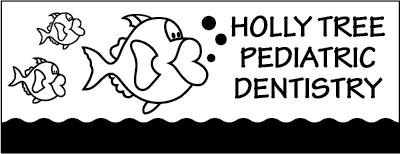Did you know that you were born with baby teeth? Yes! They just weren’t visible! An infant’s baby (or primary) teeth are already in its jaws at the time of birth! They’ll start to appear anywhere between 5-6 months to the end of the first year. By the time most children are 3, they will have all baby teeth visible. You could tell your budding marine biologist that he’s like a SHARK and you’d be right! At least for this one instance…
Your baby teeth are your first big step to growing up!
Baby teeth are vitally important. Yes, even though they fall out, even their formation had its purpose. First, baby teeth hold space in the jaw for permanent teeth that are growing underneath them in the jaw. If a baby tooth is lost too soon, other baby teeth will shift. Once this happens, it’s a domino effect. Did you know it’s possible for teeth on the other jaw to move? Just from that one lost tooth! Once shifting happens and adult teeth start their ascent, they can face crowding or come in completely crooked.
Baby teeth also play pivotal roles in chewing (ok, I’m sure you all knew that) and speaking. As you know, chewing helps children grow by allowing them to eat healthy foods easier. Once their initial chompers come in, kids are over the moon about trying foods. So the appearance of baby teeth marks a pivotal time when children can move up from soft foods and start to expand their diets. As parents, we need to make sure those diets aren’t filled with sugars and bad foods but are foundations for a healthy lifestyle as they continue to grow.
Learning to speak is also largely impacted by teeth. Speaking is all about air flow manipulation. Your mouth, lips, teeth, and tongue all move in specific ways to control the air that is being forced from your throat when talking. Without teeth, the tongue is harder to keep confined and the air flow is less controlled. So your teeth actually help you tremendously when learning to pronounce syllables and make words!
How to best take care of your baby’s teeth:
Now that you know just how important your baby or toddler’s teeth are, it’s easy to see why we pediatric dentists strive hard to teach a strong dental routine. Here are our top tips to keeping baby teeth healthy:
- Nix bad foods and drinks. Soft drinks, sugary and processed foods, and even juice are top causes of cavities in young children. Young children are adaptable so we recommend cutting the bad drinking and food habits early and replacing them with water and healthy snacks/foods as quick as possible. Keeping kids away from detrimental foods while they’re in their early years can help them maintain healthy eating habits later on.
- Brush & floss. Get your baby ready for teeth brushing by brushing their gums with silicone finger brushes when they are still infants. Once the first tooth comes in, kick the dental routine in high gear – start brushing, twice a day, and don’t forget the floss. We have another article with recommendations for floss and toothpaste for kids of all ages.
- Flouride is ok. While fluoride-free toothpaste has gained in popularity in recent years, fluoride is a key ingredient in toothpastes because of it’s cavity fighting power. Fluoride will strengthen weak spots in the enamel of tooth, preventing cavities from causing more damage. As pediatric dentists, we can’t recommend flouride toothpaste enough!
And don’t forget their first checkup! Starting a happy relationship with dentists is another key moment for babies once teeth start coming in. We highly recommend once the first tooth appears, for parents to schedule their child’s first dental visit. This first visit will help the child become comfortable with dental cleanings and the dentist office, leading to a stronger dental routine down the road. Not sure what to expect? Click here to read about what we do on our first dental visits. If you have an appointment scheduled and are worried about your child’s reaction, we also have tips on how to generate excitement and easy anxiety ahead of the big day.


